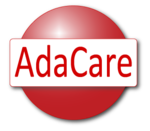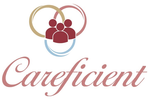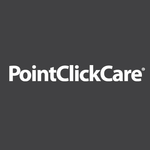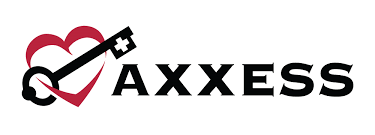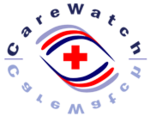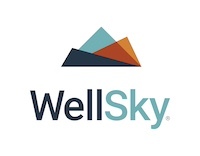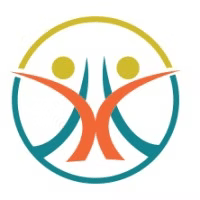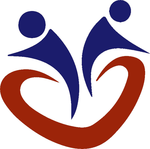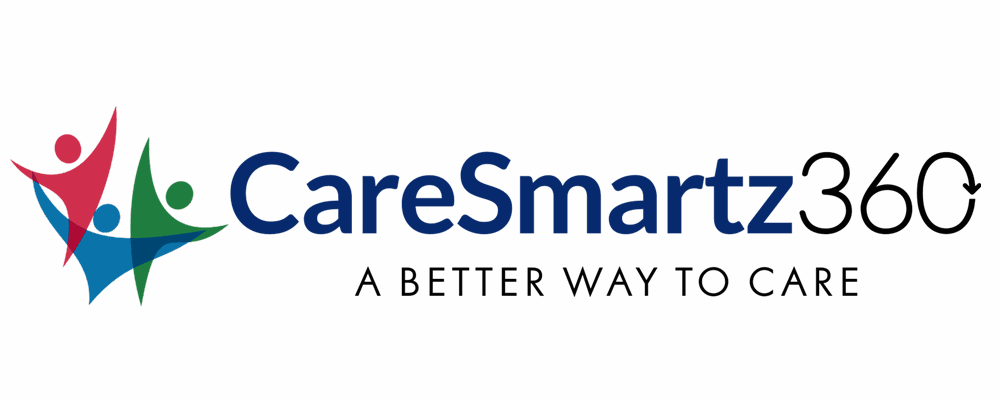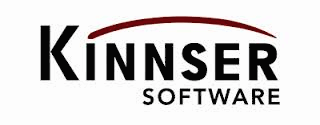What Is Home Health Care Software?
Home health care software is a digital system created primarily for managing home care firms. It simplifies and automates a variety of administrative and clinical activities, resulting in more efficiency and better patient care. At its core, home health care software is a comprehensive system that integrates multiple tools and functions to help a home care firm run its daily operations.
It enables organizations to manage patient information, establish treatment plans, schedule visits and staff, track patient progress, bill and invoice, and generate reports all from one single site. One of the primary advantages of home health care software is its capacity to enhance communication and coordination among caregivers, patients, and other stakeholders.
With features like secure texting and real-time updates, all members of the care team may work together to offer timely and effective treatment to patients. Another significant feature of home health care software is its emphasis on compliance and regulatory standards. It ensures that agencies adhere to industry standards and rules, which are typically complex and constantly changing.
This not only helps to avoid penalties and fines, but also gives patients and their families peace of mind. Furthermore, home health care software has extensive reporting capabilities, allowing agencies to monitor their performance and find areas for improvement. They can also create customized reports to satisfy the specific requirements of their organization or stakeholders.
What Are The Recent Trends In Home Health Care Software?
The home health care market has grown significantly in recent years, creating a demand for efficient and innovative software solutions. This has driven software companies to constantly innovate and remain ahead of the curve in order to satisfy the changing needs of home health care providers and patients.
Some of the latest advances in home health care software are:
1. Cloud-Based Software Solutions: With the advent of remote work and virtual care, cloud-based software solutions have gained popularity in the home health care business. These systems facilitate patient data access, streamline caregiver communication, and improve care delivery efficiency.
2. Mobile Apps: As smartphones and tablets have gotten more popular, mobile apps have become a useful tool for home health care providers. These apps provide rapid access to patient records, appointment scheduling, and prescription management, streamlining the process and lowering the chance of errors.
3. AI Integration: AI technology is being used in home health care software to increase patient data accuracy, automate administrative processes, and deliver individualized care plans. AI-powered scheduling and predictive analytics can also aid with resource allocation and patient outcomes.
4. Data Security: As the volume of sensitive patient data collected and kept in software systems grows, so does the demand for strong security measures. Home health care software is now adopting advanced security mechanisms, such as encryption and multi-factor authentication, to protect patient data from cyber threats.
5. Telehealth: The COVID-19 epidemic has expedited the use of telehealth technology in the home health care sector. Software solutions that enable video conferencing, remote patient monitoring, and virtual consultations are in high demand, allowing healthcare providers to give care remotely and safely.
Benefits Of Using Home Health Care Software
Home health care software is a digital solution created exclusively for the home healthcare business. It provides a variety of features and tools to help home health care organizations and professionals manage their company operations and provide high-quality care to patients.
Here are the advantages of adopting home health care software and how it may improve the efficiency and efficacy of your home care services.
1. Streamlined Patient Management: One of the most major advantages of using home health care software is that it simplifies patient management. The program allows organizations to effortlessly track patients, arrange appointments, and manage care plans. It also gives caregivers access to important patient information including medical history, prescription schedules, and allergies, allowing them to provide targeted and timely treatment.
2. Improved Communication: Effective communication is critical in the home health care market, and home health care software facilitates and expedites it. The software enables secure, real-time communication among caregivers, patients, and their relatives. It also allows for electronic documentation and sharing of patient information, eliminating the need for physical paperwork and lowering the risk of errors.
3. Improved Care Coordination: Home health care software includes improved care coordination features that enable caregivers to build and manage care plans cooperatively. It also allows them to track patient progress, set goals, and make changes to care plans as needed. This feature improves the overall quality of care and encourages patient success.
4. Time And Cost Savings: Home health care software automates numerous laborious and time-consuming procedures, including invoicing, documentation, and scheduling. This automation saves time and decreases errors, allowing caregivers to focus on providing high-quality care to their patients. Furthermore, it saves organizations money on administrative expenditures, making it a cost-effective tool for managing their operations.
5. Compliance And Security: Home health care software is designed to comply with all applicable legislation and guidelines, ensuring that agencies and caregivers adhere to the standards of care. It also has additional security measures, such as role-based access control, to safeguard sensitive patient data and maintain confidentiality.
6. Data Analysis And Reporting: Home health care software allows agencies to track and analyze a variety of data points to obtain insight into their company operations. This data can help them discover areas for improvement, track performance, and assess patient outcomes. It also allows them to easily prepare audit and compliance reports.
Important Factors To Consider While Purchasing Home Health Care Software?
When choosing the best Home Health Care Software for your organization, there are a few key elements to examine to ensure that the software fulfills your specific requirements and is worth the investment.
Here are the essential elements to consider when making your purchasing decision:
1. User-Friendly Interface: The first and most important consideration is the software's simplicity of use. Look for software with a simple design and easy navigation so that your employees can rapidly understand and use the functions without any training.
2. Customization And Scalability: Your home health care business is unique, with its own set of needs. As a result, it is critical to select software that is easily customizable to meet your individual requirements. In addition, the software should be scalable to support future growth and changes in your firm.
3. Integration Capabilities: In today's digital environment, it is critical that the software is interoperable with other systems in your firm, such as electronic health records (EHRs) and billing software. This allows for seamless data transfer and efficient workflow management.
4. Comprehensive Capabilities: Your home health care software should include all of the required capabilities, such as scheduling, care plan management, prescription administration, and patient record management. Make sure to conduct extensive study and compare various software solutions to determine which one has the most comprehensive functionality for your individual requirements.
5. Mobile Compatibility: As mobile technology advances, having software that can be accessed from a mobile device becomes increasingly crucial. This enables your employees to enter and retrieve patient information on the fly, increasing efficiency and production.
6. Security And HIPAA Compliance: As an enterprise working with sensitive patient information, it is critical to choose software that emphasizes data security and complies with HIPAA requirements. This ensures that patient information is kept safe and secure from potential cyber attacks.
7. Customer Help: In the event of a technical issue or inquiry, it is critical to have access to dependable customer help from the software vendor. Look for a company that provides 24-hour customer service and has a reputation for timely and effective service.
What Are The Key Features To Look For In Home Health Care Software?
When it comes to choosing the best home health care software for your organization, a few important aspects should be at the top of your priority list. These characteristics can significantly improve the effectiveness and efficiency of your operations, resulting in better care for your patients.
Let's take a closer look at the important elements to consider before making a purchase.
1. EHR Management: One of the most essential elements of home health care software is the capacity to handle electronic health records (EHRs). This includes storing, retrieving, and distributing patient data like as medical histories, prescriptions, and treatment plans. Look for software that allows you to customize forms and templates to meet the specific demands of your company while also providing easy and safe access to patient information.
2. Scheduling And Appointment Management: An effective scheduling and appointment management system is critical to the seamless operation of a home health care organization. Look for tools that will help you schedule and manage appointments, track staff availability, and send automatic reminders to patients and caregivers. This will help reduce no-shows and scheduling problems, resulting in better resource use and higher patient satisfaction.
3. Billing And Invoicing: Accurate and timely billing is critical for any healthcare institution. Home health care software with built-in billing and invoicing capabilities can save time and reduce billing problems. Look for billing software that automates the process, generates bills, and offers full reports on payments and outstanding invoices.
4. Mobile Accessibility: In today's fast-paced world, having information at your fingertips is essential. Look for software that provides mobile access to both caregivers and administrative workers. This will enable caregivers to access patient information, arrange schedules, and record treatment notes while visiting patients at home. Furthermore, administrative staff may effectively oversee activities even when they are not present in the office.
5. treatment Plan Management: Providing high-quality treatment to patients requires a detailed care plan. Look for software that lets you develop, tweak, and track care plans for individual patients. This should have the ability to create goals, track progress, and provide updates as needed.
6. Analytics And Reporting: Access to real-time data and analytics is critical for making educated decisions and optimizing operations. Look for software that includes strong reporting and analytics capabilities, allowing you to monitor key performance indicators, discover areas for improvement, and make data-driven decisions.
7. Compliance And Security: Because home health care software handles sensitive patient information, security and compliance must be carefully considered. Look for software that meets HIPAA standards and has features like safe data storage, user rights, and audit logs.
Why Do Businesses Need Home Health Care Software?
Home health care software is an essential tool for healthcare firms, as it provides a comprehensive solution for streamlining and managing the various operations involved in home health care services. This software has various benefits, including appointment scheduling, patient record management, invoicing, and reporting, making it a critical investment for businesses of all sizes.
Here are the top reasons why your organization requires home health care software.
1. Efficient Management Of Patient Data: One of the primary reasons organizations use home health care software is to effectively manage and retain patient data. The program facilitates the access and management of patient information, such as medical history, treatment plans, and progress notes. This saves time while also ensuring accuracy and compliance with HIPAA laws.
2. Improved Scheduling And Time Management: Home health care software includes extensive scheduling tools that enable firms to manage their employees and appointments more efficiently. Real-time updates and notifications allow home health care providers to better utilize their time and resources for optimal productivity.
3. Streamlined Billing And Payment Processes: Home health care software automates billing and invoicing, which reduces the possibility of errors and delays. It also provides easy online payment options, making it easier for patients to pay their invoices and improving cash flow for the business.
4. Improved Communication And Collaboration: The program provides secure communication channels between healthcare personnel, patients, and their families, allowing for efficient and timely communication. This promotes greater collaboration and coordination among all parties involved in a patient's care.
5. Accurate And Timely Reporting: Home health care software enables businesses to generate accurate and timely reports, revealing critical information about their operations. These reports can help you find areas for improvement, optimize procedures, and make sound business decisions.
6. Increased Productivity And Efficiency: By automating procedures and streamlining management, home health care software helps organizations save time and resources while increasing productivity. This enables more efficient use of people and resources, resulting in higher quality care and better patient outcomes.
How Much Time Is Required To Implement Home Health Care Software?
Introducing new software to your home health care firm can be a daunting endeavor, but with good planning and execution, it has the potential to greatly improve operations and patient care. The time necessary to adopt home health care software varies depending on a number of factors, including the size of your agency, the complexity of the software, and the level of training required for your employees.
On average, a complete implementation procedure can take 3 to 6 months.
1. Planning And Assessment Phase: The first step in installing home health care software is to properly evaluate your agency's requirements and objectives. During this phase, you will meet with your team and software providers to discuss your present procedures, potential challenges, and desired goals. It is critical to spend time understanding the software's capabilities and determining any adjustments or integrations required to fulfill your individual needs. This period normally lasts 1 to 2 weeks.
2. Setup And Configuration: Once your agency's requirements have been defined, the software provider will proceed to install and configure the software. This process entails developing a user interface, importing client data, generating timetables, and modifying workflows to match your agency's procedures. The duration varies according to the intricacy of your agency's requirements and the software's capabilities. This phase takes an average of 4 to 6 weeks to complete.
3. Training And User Acceptance: Training is an essential part of effective implementation. It enables your employees to understand how to use the program, do jobs efficiently, and fix any problems that may develop. Depending on the needs of your agency, training can be delivered online, on-site, or a combination of the two. User acceptability testing is also an important aspect of this phase, allowing your team to test the software's functionality and provide comments. The training and user acceptance phases can last 4 to 6 weeks.
4. Go-Live And Post-Implementation: Once the software is installed, configured, and your team is educated, you are ready to go live. The go-live procedure entails switching from the old to the new system, which may take a few days to complete. It is critical to have a support structure in place during this time to handle any issues or concerns your employees may have. The post-implementation phase also entails monitoring and fine-tuning the software to guarantee a smooth transition and efficient operation. This period might run from two to four weeks.
What Is The Level Of Customization Available In Home Health Care Software?
When selecting the proper home health care software for your agency, one critical factor to consider is the level of customization offered. This refers to the software's capacity to be adapted to your unique requirements and preferences, as opposed to a one-size-fits-all approach. The level of customization varies substantially across different home health care software companies.
Some may provide a diverse range of options and features that can be tailored to your agency's specific workflows and processes, whereas others may have more limited customization capabilities. One important feature to check for is the option to build personalized forms and templates. This enables your agency to build and arrange assessments, care plans, and other forms based on your individual needs.
This not only saves time, but also ensures that all relevant information is captured correctly. Another key feature of customization is the ability to interact with current systems and software. This enables for seamless data transfer while eliminating the need for human data entry. Furthermore, the option to add or delete modules and functionalities based on your agency's requirements is useful for customisation.
Some home health care software also provides individual user settings, allowing users to customize their dashboard and preferences based on their job and duties. This not only boosts efficiency but also enhances the user experience. It is vital to note that excessive modification might make the software complex and difficult to use. As a result, it is critical to strike a balance and select software that provides a significant level of flexibility while maintaining ease of use.
Which Industries Can Benefit The Most From Home Health Care Software?
Home health care software has emerged as a crucial tool for healthcare professionals and organizations seeking to increase efficiency and care quality. This powerful program automates numerous jobs and procedures, making it an invaluable asset in a variety of businesses.
Let's explore, which sectors can benefit most from home health care software and how it can transform their operations.
1. Home Health Care Agencies: Home health care agencies are the most common consumers of home health care software. This program allows them to handle all elements of their business, from scheduling and tracking patient visits to invoicing and payment processing. Home health care software enables agencies to streamline their operations, decrease administrative responsibilities, and increase the overall quality of care they deliver to their patients.
2. Hospitals And Healthcare Facilities: Home health care software can be extremely beneficial for hospitals and other healthcare facilities that provide home health services. These hospitals can utilize the software to monitor patients' progress and interact with home health care providers, guaranteeing continuity of care. It also aids in workload management and ensures that the proper medical equipment and supplies are accessible for home visits.
3. Skilled Nursing Facilities: Skilled nursing facilities, often known as nursing homes, frequently use home health care software to monitor their patients' care following discharge. This program enables them to communicate with home health care agencies and track the patient's progress remotely. This program can also be used by skilled nursing facilities to document, report, and comply.
4. Government And Non-Profit groups: Using home health care software can assist both government agencies and non-profit groups who provide home health care. This program enables them to effectively manage their resources, log patient visits, and provide reports for financial and compliance purposes. It also helps them keep accurate patient care records and improve service delivery.
5. Private Duty Care Providers: Individual caregivers and small home health care firms can use home health care software to handle daily duties and deliver timely and effective care to their clients. With features such as remote patient monitoring and electronic documentation, healthcare clinicians can provide high-quality treatment to their patients while decreasing administrative load.
Conclusion
To summarize, investing in high-quality home health care software is critical to the success and efficiency of any home health care organization. With so many options available, it can be difficult for consumers to select the best software for their individual requirements. Before making a final decision, purchasers must thoroughly evaluate their agency's requirements, the software's features and functions, and the vendor's price and reliability.
In order to make a more informed decision, key stakeholders must be involved and their feedback sought. Buyers should also check that the software is user-friendly, comes with adequate training and technical support, and adheres to all industry norms and guidelines. Agencies that use comprehensive and effective home health care software can streamline their operations, improve patient care, and increase overall productivity.
We hope that this buyer's guide has provided you with useful insights and considerations for making an informed decision when selecting home health care software. Remember to extensively investigate and compare several possibilities before making a final decision to ensure that you have the greatest answer for your agency's needs.


